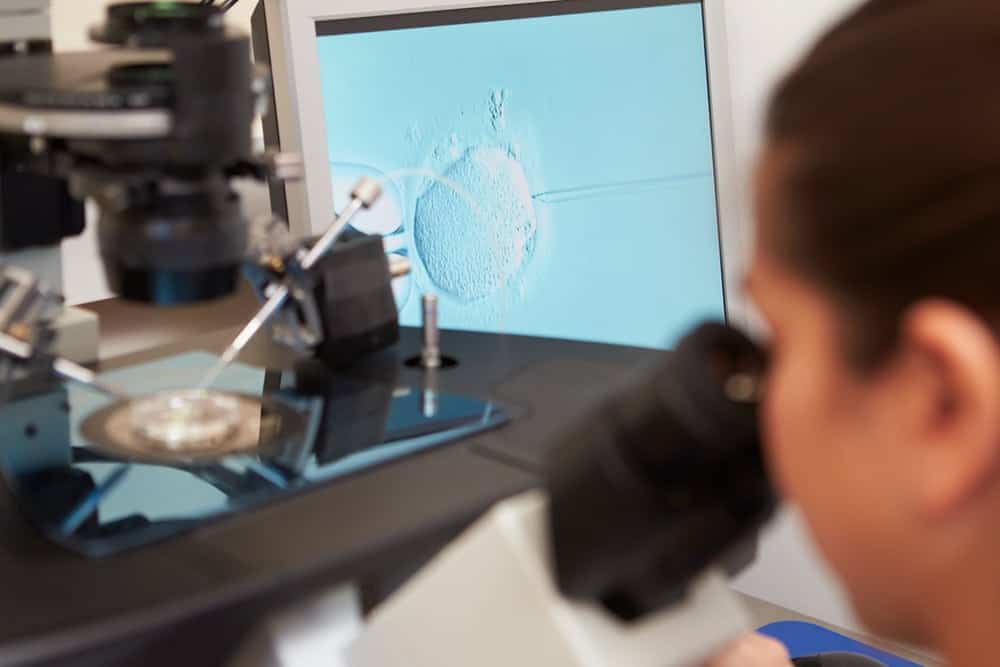Surrogacy is usually chosen by people when they are unwilling or unable to have children of their own.
Other options include adoption — although placing a price on something like the wish or desire to have a child is somewhat hard to understand, couples do invariably weight out the financial costs of adoption versus surrogacy.
The person or couple who opt for surrogacy are referred to as the commissioning parents. Depending on the case, some commissioning parents might require a DNA test for surrogacy to prove their biological relationship to their child. This is especially relevant in cases of international surrogacy. A DNA test can help the child born through surrogacy make a legitimate claim to citizenship by descent and the test itself, is indispensable as it is an actual requirement by the Department of Immigration and Citizenship.
Surrogacy in Australia
Many couples opt to look for a surrogate mother outside Australia because of two main reasons:
- Surrogacy, whereby the surrogate mother charges any kind of costs for carrying the child, (referred to as commercial surrogacy) is illegal in Australia. There is however what is known as “altruistic surrogacy” which is perfectly legal in Australia.
- The commissioning parents might look for countries where surrogacy is available at most competitive prices.
Even in countries where commercial surrogacy is illegal, surrogacy itself may still be available (it is in fact available in Australia and one finds several surrogacy agencies and the commissioning parents will still incur medical fees, legal fees, insurance coverage and other fees. There are several laboratories and companies offering this type of test in the UK including International Biosciences, The Genetic Testing Laboratory and easyDNA UK.
Understanding the types of Surrogacy
Understanding surrogacy DNA testing for Australian citizenship by descent requires understanding fully how surrogacy takes place. Moreover, despite this article focusing on Australian citizenship for children born through surrogacy, the same would apply for citizenship claims in surrogacy cases in other countries.
There are two types of surrogacy: Traditional and gestational.
In the traditional method the surrogate mother is inseminated with the father’s sperm. The surrogate mother and the father are both biological related to the child but the surrogate mother will sign off any rights to parentage, giving up the child to the commissioning parents.
Gestational surrogacy is done through In Vitro Fertilization (IVF) under controlled laboratory conditions. IVF is a type of assisted reproductive technology that has enabled coupes to have their own biological offspring. In IVF, the father sperm and mother’s egg are fertilized and the embryo is inserted into the surrogate mother’s fallopian tubes. The child born is biologically related to both the commissioning mother and the commissioning father but is entirely unrelated to the surrogate. This process is a more costly option then the tradition form of surrogacy. Of course, in some cases, donor eggs or sperms may be used.
Why test for DNA in cases of Surrogacy?
A child born to Australian parents outside the Commonwealth of Australia does not, automatically, get Australian citizenship. Parental DNA testing of the mother and/or father helps confirm biological relationships as well as proving that the parents are the legal parents of the child born. A person or a couple may want to confirm that the sperm used to impregnate the surrogate mother is the sperm from the person it was intended to be from (that it was taken from the intended father and that no confusion has taken place during fertilisation or implantation). Such a confusion could not only be devastating on an emotional level as the couple would have intended to have their own biological child, but could also prove an insurmountable hurdle when it comes to claiming Australian citizenship by descent.
In cases where a child is born outside the home country of the parent or parents, immigration authorities require documentation in order to prove the biological relationship between the child and the parent/s. This proof of biological relationship is crucial as only a blood relative can be entitled to citizenship. Furthermore, the commissioning parent/s needs to prove that they are the legally recognised parents of the child they are trying to bring with them back to Australia. Claims to Australian citizenship by descent for children born through surrogacy are regulated under the Australian Citizenship Act 2007.
The costs of DNA testing, which is mandatory in such cases, are covered by the commissioning parents. Now, a complication may here arise: the child cannot enter the Commonwealth of Australia unless the DNA test for surrogacy has been carried out. This means that the child will have to be tested in the country of birth by an appointed Panel Doctors in New Delhi or Mumbai and the parent, as per requirements of Immigration Australia, must be sampled and tested in Australia. For the child, the Australian High Commission will need to be involved and updated on the laboratory chosen to carry out the DNA test.
Once results have been issued, the laboratory will forward these to the High Commission who will determine whether or not the child is eligible for citizenship by descent. The biological relationship can of course, only be established once both the DNA profiles of the child and the parent/s are complete and compared to determine a match. Besides DNA test results, the commissioning parents will also need to present the contract which will detail the conditions and provisions under which surrogacy took place, including relinquishing of the surrogate mother’s rights over the child in favour of the commissioning parents. Importantly, the laboratory chosen must be accredited by the National Association of Testing Authorities (NATA). Failure to do so will automatically nullify the results.













